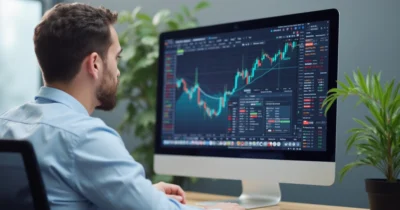Trading can feel like navigating uncharted waters—exciting yet overwhelming. Maybe you’ve dabbled in trading but struggle to achieve consistency, or you’re just starting and want to skip common pitfalls. Whatever your experience level, the good news is that Developing professional-level trading skills isn’t reserved for the elite; you can rocket your trading skills. With the right strategies, mindset, and dedication, you can elevate your trading game and reach new heights.
In this guide, we’ll uncover actionable steps to help you master trading, from building a strong foundation to embracing a mindset that fosters resilience and success. Let’s dive in!
Table of Contents
Understanding the Basics: The Foundation of Pro-Level Trading
Every successful trader starts with a solid foundation. You wouldn’t build a skyscraper without a sturdy base, and trading is no different. Before diving into complex strategies, you need to master the fundamentals.
Learn the Language of Trading
To succeed, you must first understand the jargon. Here are some essential terms to get familiar with:
- Pips: The tiniest change in a currency’s price during trading.
- Leverage: Borrowed capital that allows you to control larger trades.
- Margin: The amount of money needed to open a position.
- Lot size: The standardized quantity of a trading instrument.
Learning these terms will not only make you fluent in the trading world but also improve your decision-making. Tools like MetaTrader 4 or 5 can help you apply this knowledge in real-time.
Start with a Solid Plan
Professional traders don’t rely on guesswork; they rocket your trading skills. They use carefully crafted trading plans. Your plan should include:
- Clear goals: Define what you want to achieve, whether it’s monthly returns or long-term portfolio growth.
- Risk tolerance: Determine how much you’re willing to risk per trade—a common rule is no more than 1-2% of your capital.
- Trading timeline: Decide whether you’ll focus on day trading, swing trading, or long-term investments.
A well-structured plan will serve as your roadmap, ensuring you stay on track and avoid emotional decisions.
Sharpening Your Technical Skills
Technical analysis is the bread and butter of most professional traders. It allows you to identify trends, spot opportunities, and make data-driven decisions.
Master the Charts and rocket your trading skills.
Chart analysis is a skill every trader must develop. Start by understanding key elements like:
- Candlestick Patterns: Learn how bullish and bearish candles reveal market sentiment.
- Support and Resistance Levels: These act as psychological barriers where prices tend to reverse or consolidate.
Use platforms like TradingView to practice reading charts and identifying patterns. Regular practice will sharpen your eye for detail.
Develop an Edge with Indicators
Indicators can provide valuable insights, but simplicity is key. Focus on mastering a few key tools, such as:
- RSI (Relative Strength Index): Helps identify overbought or oversold conditions.
- MACD (Moving Average Convergence Divergence): is a tool that helps identify the strength and direction of a trend.
- Fibonacci Retracement: Highlights potential reversal levels.
Remember, less is more. Overloading your chart with indicators can lead to confusion and missed opportunities.
Build Mental Resilience: The Hidden Key to Pro Trading
Trading isn’t just a numbers game; it’s a mental battle. The ability to remain calm and focused under pressure separates amateurs from professionals.
Emotional Discipline
Emotions can cloud your judgment. To trade like a pro, you need to master your emotions:
- Avoid Revenge Trading: Don’t chase losses by making impulsive trades.
- Control Greed and Fear: Stick to your plan, even when the market tempts you to overtrade.
Developing emotional discipline takes time, but techniques like mindfulness and journaling can help.
Manage Stress Like a Pro
Trading can be stressful, but healthy habits can keep you grounded:
- Daily Meditation: Even five minutes of mindfulness can improve your focus.
- Exercise: Physical activity helps release stress and boosts mental clarity.
- Breaks: Step away from your screen to avoid burnout.
Pro traders know that managing their mental state is just as important as managing their portfolio.
Learn From the Pros: Reverse Engineer Success
Why reinvent the wheel when you can learn from those who’ve already succeeded? Emulating the habits of professional traders can fast-track your growth.
Follow Expert Traders
Many experienced traders share their insights through books, webinars, and online communities. Some steps to take:
- Tune in to live trading sessions and see strategies being applied in real-time.
- Read classics like “Trading in the Zone” by Mark Douglas or “The New Trading for a Living” by Dr. Alexander Elder.
Join a Trading Community
Trading can be isolating, but joining a community can provide support and valuable feedback. Engage in:
- Online forums like Forex Factory or Reddit’s r/Forex.
- Social media groups or Discord channels where traders share tips and strategies.
Working with others can open you up to fresh ideas and new opportunities.
Stay Updated: The Role of Market Analysis in Trading
Markets are constantly changing, and staying informed is crucial to making informed decisions.
Economic Calendars are Your Best Friend
Economic events like interest rate decisions and employment reports can move markets significantly. Use tools like Forex Factory to:
- Track upcoming events.
- Plan trades around high-impact news.
Combine Technical and Fundamental Analysis
Technical analysis zeroes in on price movements, whereas fundamental analysis takes a step back to consider the bigger economic picture. Combine the two for a well-rounded approach. For example:
- Use technical setups to identify entry points.
- Align these setups with fundamental factors, like GDP growth or central bank policies.
This synergy can give you a competitive edge in the market.
Practice, Adjust, and Scale Up
Practice makes perfect, but smart practice makes profits. To refine your skills, focus on consistent learning and gradual scaling.
Backtesting and Paper Trading
Test your strategies in a risk-free environment before putting any real money on the line:
- You can practice with demo accounts to get a feel for real market conditions.
- Backtest strategies on historical data to gauge their effectiveness.
This approach allows you to refine your methods without financial risk.
Gradual Scaling
Once you’ve proven a strategy, scale up your trades responsibly:
- You can begin with smaller positions and slowly grow them as you gain more confidence.
- Monitor your performance to ensure consistent growth.
Professional traders prioritize steady progress over quick wins.
FAQs About How to Rocket Your Trading Skills
How much time does it take to become a professional trader?
It varies, but with consistent effort, most traders see significant improvement within 1-3 years. The key is to stay committed to learning and refining your skills.
What is the most common mistake new traders make?
Overtrading and neglecting risk management are the two biggest pitfalls. Follow your trading plan and resist the urge to chase after losses.
Can I rocket my trading skills without a mentor?
Yes, but mentorship can accelerate your progress by providing guidance and real-world insights. If you can’t find a mentor, books and online resources are excellent alternatives.
Conclusion
Trading like a pro isn’t about shortcuts or luck—it’s about mastering the fundamentals, building mental resilience, and consistently refining your craft. By following the steps outlined in this guide, you’re setting yourself up to rocket your trading skills for long-term success. Keep in mind, becoming a professional trader is a long-term journey, not something that happens overnight. Start small, stay disciplined, and watch your trading skills soar.
Ready to take the next step? Start crafting your trading plan today, and don’t forget to share your progress in the comments or trading communities to rocket your trading skills.







